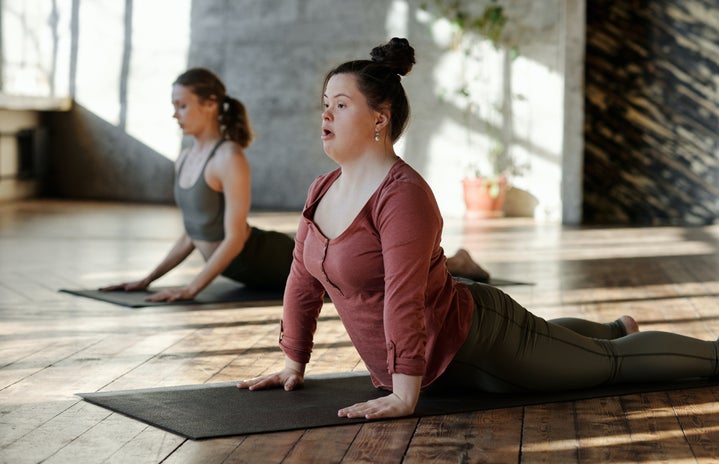Self-care involves honing novel talents, practicing hobbies, participating in fun activities, requesting help when necessary, laughing, and spending time with supportive people for mental and physical well-being. When coping with a long-term illness, it is acceptable to prioritize self-care over the needs of others.
- Weighted blanket
-
I personally enjoy my weighted blanket because it provides a comforting and calming sensation that helps me relax and sleep better at night. The gentle pressure from the blanket feels like a soothing hug, reducing my anxiety and promoting a sense of security. Additionally, the added weight of the blanket helps to alleviate muscle tension and promote deeper, more restful sleep.
- Ice or heat packs
-
Apply a cold compress to your forehead if you are experiencing a migraine. A package of frozen veggies, a few ice cubes wrapped up in a towel, or even a chilly shower might help reduce the pain. I personally go for a headache wrap that you can find in a Rite Aid or a Walmart near you. The headache wrap provides targeted relief by applying gentle pressure to the temples and forehead, helping to ease tension and reduce headache symptoms. It is a convenient and effective solution for those seeking quick relief from migraines or headaches.
- Aromatherapy
-
Some scents may help alleviate headaches. Peppermint may make you less conscious of pain, while lavender may reduce anxiety. You can apply the oil directly to your temples or the inside of your wrist. In my dorm room, I also have a lavender scent going through the day. I have found that this does help reduce how intense my headaches can be.
- Settle your stomach
-
Motion sickness bands can help prevent nausea caused by migraines. Keep them close at hand. Sip peppermint tea and eat saltines, which can also assist with a sore stomach. Additionally, ginger has been known to settle the stomach and relieve nausea. Adding ginger to your diet or drinking ginger tea may provide some relief from migraines and their associated stomach discomfort. It’s important to experiment with different remedies to find what works best for you.
- Stress-Relief Bath Salts
-
Bath salts are a great self-care tool, especially beneficial for those with chronic pain. Made with magnesium flakes, dead sea salt, and essential oils, they provide stress relief and muscle recovery. Bath soaks, containing Epsom salt, arnica, and menthol offer additional pain relief. Experiment with different products and find the one that works best for your needs. Incorporating other stress-relief techniques like meditation or gentle exercise can also complement the benefits of bath salts in managing chronic pain and fatigue.
- Symptom Journal
-
If you enjoy writing things down, a symptom notebook may be quite useful for remaining organized and tracking any symptoms you have during the week. Chronic illness notebooks also allow you to monitor changes over time, which is useful for doctor’s visits and appointments. In addition, you should contact your healthcare practitioner about any concerns or potential interactions with any drugs you may be taking. They can advise you on how to use bath salts correctly and whether they are a good alternative for managing your chronic pain and exhaustion. Remember, everyone’s experience with chronic disease is unique, so it may require some trial and error to discover the optimum mix of therapies that work for you.
- Do What You Enjoy
-
Self-care might consist of learning new things or practicing talents that make you happy. Play an instrument, make art, or write your memoirs. Maybe you enjoy attending local auto shows or concerts in your area. You might wish to set aside some time each day to read your favorite book or visit a friend. If you no longer enjoy pastimes or hobbies as much as you used to, consult with a therapist or your healthcare team to address these changes.

